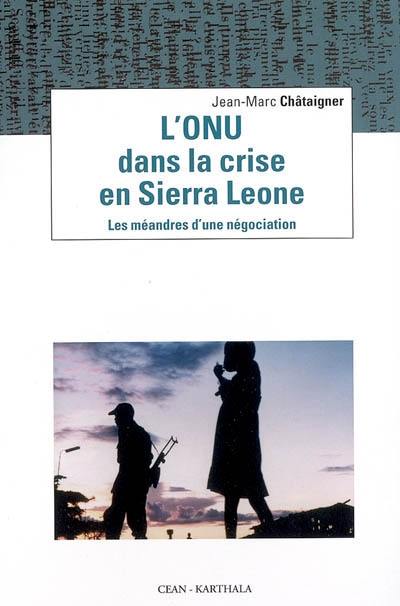
Fiche technique
Format : Broché
Nb de pages : 197 pages
Poids : 340 g
Dimensions : 16cm X 24cm
EAN : 9782845866195
L'ONU dans la crise en Sierra Leone
les méandres d'une négociation
Quatrième de couverture
Le retour de la paix en Sierra Leone depuis mai 2000 a été accompagné par le déploiement d'une des plus importantes forces de maintien de la paix des Nations unies depuis la seconde guerre mondiale. Conduit par le Conseil de sécurité, ce retour à la paix s'est inscrit dans le cadre d'une prise de conscience politique de la communauté internationale, malgré les échecs précédents rencontrés en Somalie, au Rwanda et en Angola.
L'action du Conseil de sécurité est minutieusement étudiée, non sans avoir analysé les causes structurelles de l'effondrement de l'État et le contexte régional de crise ainsi que la logique des principales décisions du Conseil, les rapports de forces sous-jacents entre ses membres et les interactions avec les principaux acteurs concernés.
Cette recherche met en lumière les réalités concrètes des négociations au sein du Conseil de sécurité. Elle explique comment les positions adoptées par les différents acteurs peuvent contribuer à la résolution d'un conflit ou au contraire compliquer la tâche des négociateurs sur le terrain.
The return of peace in Sierra Leone in May 2000 has provoked a genuine reaction of the international community confronted to the downfall of this small west-African State, where the most massive peacekeeping forces of the United Nations since World War II has been sent. The action of the Security Council in Sierra Leone demonstrates the emergence of a new political awareness in favor of Africa in spite of the previous failures in Somalia, Rwanda and Angola.
Jean-Marc Châtaigner outlines the complet history of the action of the Security Council in favor of Sierra Leone, from December 1994 until the adoption of Resolution 1346 by which the UNAMSIL was reinforced to more than 17000 soldiers.
After recalling the structural reasons for the downfall of the State in Sierra Leone and the regional context of the crisis, he analyzes the political framework and the logic in which the main decisions of the Security Council are taken.
This research sheds light on the realities of the negotiations within the Security Council. Beyond the official statements, it explains how the positions adopted by the different actors, their rivalries and oppositions, the strategies of alliances, collusion and negotiations, can contibute the resolution of a conflict or, in the contrary, complicate the negociators on the field.





